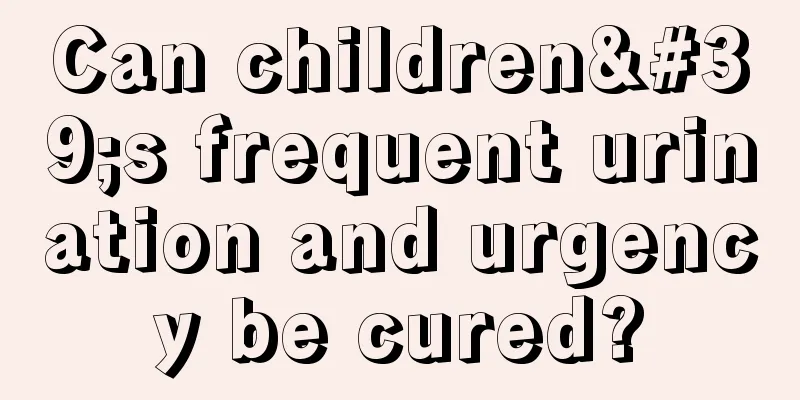Symptoms of mental retardation

|
In the context of eugenics and good parenting, what parents worry about most is their children's intellectual development. This is mainly due to changes in lifestyle, environmental pollution, and food insecurity. Children's health is threatened in various ways, so people are more worried about their intellectual development. For many parents, they don’t know how to determine whether their children have developmental delays. In fact, children's intellectual development has symptoms. Generally speaking, developmentally delayed and gifted children will convey their symptoms to others through their daily behaviors. Therefore, as long as you understand the relevant manifestations, you can basically confirm whether there is intellectual disability. So, what are the symptoms of intellectual disability? Generally speaking, if infants under 3 years old have one or more of the following abnormal manifestations, it highly indicates the possibility of mental retardation: 1. Abnormal crying, that is, the time from stimulation to crying is long, sometimes repeated or continuous stimulation is needed to induce crying, or the crying is sharp, or the crying is small and weak; some children do not like to cry and appear unusually "well-behaved". 2. Babies have poor sucking ability and are late in chewing, so they are prone to swallowing disorders and vomiting when eating solid food. 3. Sleeping too much and being difficult to wake up. 4. Babies who are over 100 days old cannot hold their heads up or have difficulty turning their heads, and one or both eyes are constantly looking inward or outward. 5. The baby only shows a smile after being 100 days old, and the expression is dull. By 6 months old, the baby cannot show a natural smile. 6. The actions of looking at and playing with hands still persist after six months. 7. Slow response to external stimuli. At 6 months old, the baby cannot focus on slowly moving objects above the face, cannot turn the head in the direction of the sound, cannot turn over by himself, and cannot sit steadily without the help of CR. 8. The baby still drools frequently at 7 to 9 months and grinds his teeth when awake. 9. By 9 months old, the baby cannot actively reach out to take things, and cannot use his legs to support his weight when an adult helps him. 10. Motor development, such as lifting the head while lying on the stomach, sitting, standing, and walking, lags behind normal children by 3 months or more; and walking is unstable. 11. Language development is delayed. By 10 months old, the baby cannot babble and his pronunciation is not clear. 12. Lack of interest in people and environment around, dislike of interacting with others, and lack of emotional attachment. With the renewal of concepts, parents are not only concerned about the degree of physical development of their children, but also pay attention to whether their intellectual development has been achieved. In fact, generally speaking, as long as there are no signs of intellectual retardation, the development is normal and parents do not need to worry about their children's intelligence. Of course, if you find that your child has intellectual retardation, you must intervene in time to avoid intellectual problems in the child. |
<<: What to eat when children have anorexia
>>: Early symptoms of cerebral palsy in children
Recommend
What's wrong with a child's nose having mucus?
There are some hair follicles at the entrance of ...
What should I do if my child has a sore throat and fever?
I believe many mothers are worried about their ba...
What are the treatments for hernia in children?
Hernia in children is also relatively common, and...
What should I do if my child’s toenail falls off?
As we all know, toenails are a part of our human ...
What are the treatments for oral ulcers in children?
Oral ulcers are superficial ulcers on the oral mu...
Cough massage for Xiaoer
If children cough at ordinary times, parents do n...
What is the reason for the child's bloody stool?
Children's immune system is relatively weaker...
What to eat for children with oral ulcers
As people’s life and work pressures continue to i...
How to give eye drops to children?
We have all used eye drops in our lives, which we...
Can children eat eight hundred lights?
Phytosanitary medicine is a very common and impor...
Methods of preventing children's diseases in spring
Spring is a high-incidence period for diseases, a...
What should parents do when their children are anxious?
Sometimes children will become very anxious after...
What to do if children have a fever caused by tonsillitis
Tonsillitis is a common disease among children. W...
Is there any harm in doing ultrasound for babies?
For pregnant women, it is a must to go to regular...
What to do if your child has a toothache and a swollen face
For children, the most common cause of toothache ...









